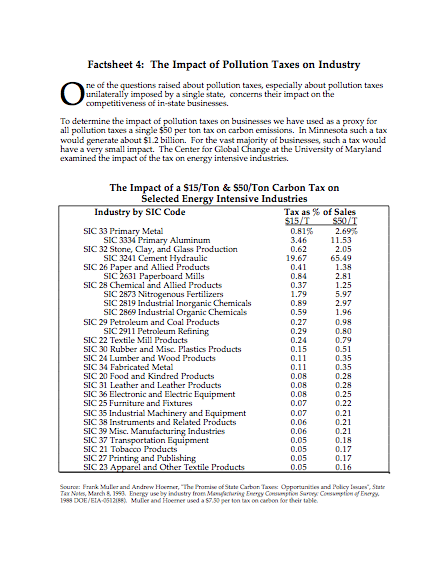Republicans Support Fossil Fuels, Not Renewable Energy
by David Morris
October 11, 1995
Under the political cover of cutting the deficit House Republicans are making clear choices about the kind of future they prefer. I doubt that many of their choices, if made clear, would be popular with the American people. Consider their actions in the energy sector.
Before 1973 the federal government massively supported nuclear power and fossil fuels. Then the oil embargo shocked the country. And we discovered that radioactive wastes from nuclear power plants require protective custody for hundreds of years. The American people quickly rallied around a bipartisan national effort to shift away from nuclear power and increasingly imported oil by dramatically improving energy efficiency and by harnessing our abundant and inexhaustible supply of domestically available renewable fuels.
This bold public effort required building a new industry from the ground up. In 1975 the U.S. did not have a single ethanol plant. Wind turbines were notoriously unreliable. Solar electric devices were impossibly expensive and used almost entirely to power space satellites. Refrigerators, cars and building were woefully inefficient.
Twenty years later national and state energy policies have begun to pay big dividends. Over 40 ethanol plants produce some 1.4 billion gallons a year. More than a dozen additional plants may start up in the next 2 years. Wind energy developers are negotiating $1 billion in contracts with utilities. The solar electric industry is doubling every 3-4 years. The efficiency of cars and buildings has doubled; the efficiency of new refrigerators has almost tripled.
Tragically, House Republicans are threatening to turn the clock back 20 years. They have proposed slashing or eliminating federal efforts to promote efficiency and renewable energy. Yet at the same time they would preserve the much more extensive subsidies for fossil fuels and nuclear power.
The House Ways and Means Committee voted to eliminate the federal 1.5 cents per kWh payment for electricity generated by wind. Yet the Committee refused to reduce federal incentives for nuclear power and fossil fuels, even though according to various studies these range from .75 to 2.0 cents per kWh.
The Committee voted to eliminate the 5.4 cents per gallon federal excise tax exemption for plant matter derived ethanol. At the same time it recommended extending the 4.3 cents per gallon tax exemption for petroleum derived jet fuel.
A similar onesidedness characterized the budget cuts for the Department of Energy voted out of the House Committee on Appropriations. The budget for fossil fuel research was cut by about 10 percent while the budget for renewables was slashed by about 50 percent. Support for nuclear power was hardly nicked.
As Friends of the Earth points out in its recent report, Dirty Little Secrets, the oil and gas depletion allowance and the synthetic fuels production credit alone cost the federal treasury more than all government funding for renewable fuels combined. House Republicans seem willing to make us pay to encourage a more rapid depletion of our nonrenewable resources while refusing to support policies to support renewable resources that will make us more self-reliant.
And what about the Republican position on energy efficiency? House Republicans have approved legislation that would virtually and in some cases literally prohibit the Department of Energy from demanding any further improvements in the efficiency of the nation’s lights, appliances, cars or buildings.
The Republican national energy policy flies in the face of the popular will. Polls consistently show that Americans far prefer renewables and efficiency over nuclear power and fossil fuels. In part this preference stems from environmental concerns. But a more important reason for the popularity of renewables is that they lend themselves to household or farm or community level power plants and refineries. They allow more and more of us to become producers as well as consumers.
Oil, gas and coal are found in only a few locations. But sunlight and wind and plant matter are available everywhere. Rooftop solar electric devices can transform houses into tiny power plants. Wind and plant matter derived energy promise an economic renaissance to rural America. That is what the American people want.
Popular opposition to their actions may be forcing the House Republicans to retreat. Recently Newt Gingrich announced his support for the ethanol incentive. Yet one wonders if this reflects a change in the Party’s heart about our energy future or the simple realization that the first even in next year’s Presidential campaign will be held in ethanol producing Iowa and that Republicans could lose half a dozen Congressional seats from agricultural areas if they eliminate the ethanol program.
Newt hasn’t expressed his support for energy efficiency or other renewable fuels. Nor have the trio of Texas Republicans in powerful positions, Tom DeLay, Dick Armey and Bill Archer, expressed their willingness to reduce the enormous incentives bestowed on the petroleum industry. Unless they do we must assume that they have turned their collective backs on a popular and farsighted 20 year old public policy that has begun to produce significant and enduring results.



